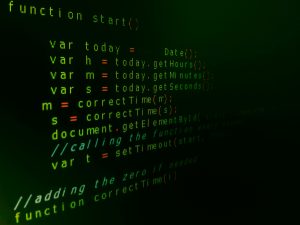INTERNAL AUDITORS’ ROLE IN PREVENTING FRAUD
Course Fee:
INTERNAL AUDITORS’ ROLE IN PREVENTING FRAUD
Objective:
• Understand the nature and types of fraud prevalent in organizations.
• Learn techniques for identifying red flags and potential fraud indicators.
• Explore the role of internal auditors in fraud prevention, detection, and investigation.
• Develop strategies for assessing fraud risk and implementing effective fraud prevention measures.
• Gain insights into the legal and ethical considerations relevant to fraud prevention activities.
• Acquire practical skills for conducting fraud investigations and reporting findings.
Course Outline:
Understanding Fraud
• Definition and types of fraud: asset misappropriation, corruption, and financial statement fraud
• Common fraud schemes and methods used by perpetrators
• Behavioral indicators and red flags of fraudulent activities
Internal Auditors’ Role in Fraud Prevention
• Overview of internal audit’s responsibilities in fraud prevention, detection, and deterrence
• Importance of internal controls in mitigating fraud risks
• Collaboration with management, legal, and compliance departments in fraud prevention efforts
Fraud Risk Assessment
• Techniques for assessing fraud risk within an organization
• Identifying and prioritizing fraud risks based on likelihood and impact
• Developing risk-based audit plans to address high-risk areas
Fraud Detection Techniques
• Data analytics and forensic accounting tools for detecting fraud patterns and anomalies
• Conducting transaction testing and forensic interviews to uncover fraudulent activities
• Utilizing technology and data mining techniques in fraud detection efforts
Fraud Investigation and Reporting
• Conducting effective fraud investigations: planning, evidence gathering, and analysis
• Interviewing techniques for obtaining information from witnesses and suspects
• Documenting findings and preparing fraud investigation reports
FOR WHOM:
All Internal Auditors in the Public and Private Sectors.
METHODOLOGY
The training methodology integrates lectures, interactive discussions, collaborative group exercises, and illustrative examples. Participants will acquire a blend of theoretical insights and hands-on practical experience, emphasizing the application of learned techniques. This approach ensures that attendees return to their professional environments equipped with both the competence and self-assurance to effectively implement the acquired skills in their responsibilities.
DATE:
1ST BATCH: 20th – 23rd May, 2025
2ND BATCH: 2nd – 5th Dec, 2025
Course Category
- Human Resource and Admin
- Finance and Accounting
- Internal Audit and Fraud Control
- Stores, Procurement and Supply Chain
- Information Technology
- Aviation and Maritime
- Banking, Investment and Insurance
- Business Communication
- Construction Management & Civil Engineering
- Engineering, Instrumentation and Maintenance
- Entrepreneurship and Business
- Hotel & Hospitality Management
- Law and Contract Management
- Management and Leadership
- Project Management
- Public Relations
- Public Sector
- Sales, Marketing & Customer Service
- Secretaries & Personal Assistants
- Transport & Logistics
- Security and Safety
More Courses
VENUE
25, Queen street, Alagomeji Bus Stop, Yaba, Lagos










